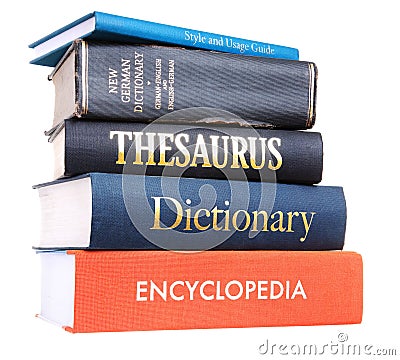

Quick 1-step search of many of the WHRHS Library databases!





























You can use reference material (such as dictionaries, encyclopedias, biographies, almanacs and atlases) to find short, basic, and factual information. Reference articles are written in simple language for a general public and are authored by editorial teams. They are good sources to use when initiating a research project.
How do I identify reference articles in a database?
In other databases, the results of a keyword search come from many different types of information sources. In these databases, results are subdivided into categories based on where the information was originally printed, so look for the REFERENCES link.
Popular magazines (such as Scientific American, Sports Illustrated, Time Magazine) contain articles written by journalists, who are often not experts on the topic they are writing about, but professionals with good writing and research skills. Magazine articles are geared toward a general audience, go into more detail than reference sources, and tend to be accompanied by advertisements and photos. They rarely contain bibliographic citations.
In databases, the results of a keyword search come from many different types of information sources. In these databases, results are subdivided into categories based on where the information was originally printed, so look for the MAGAZINE link.

Newspaper articles are usually published daily about current events and developments. They are considered primary sources. because they report on events.
Newspaper articles are written for a general audience by journalists, who are not necessarily experts on a subject, but writers with strong professional ethics about telling the truth.
Where do I find newspapers in databases?
Look for articles categorized under NEWS or NEWSPAPERS to get newspaper articles.
 Academics, scholars, researchers and other experts in a field often publish in journals (also known as peer reviewed, scholarly, or academic journals). The articles in journals tend to focus on a specific area or discipline (e.g. Nature or the New England Journal of Medicine) and as a result contain vocabulary aimed at an expert audience. Articles published in these journals have abstracts, graphs and data, and are heavily supported by references to other scholarly material (both in text and in extensive reference lists).
Academics, scholars, researchers and other experts in a field often publish in journals (also known as peer reviewed, scholarly, or academic journals). The articles in journals tend to focus on a specific area or discipline (e.g. Nature or the New England Journal of Medicine) and as a result contain vocabulary aimed at an expert audience. Articles published in these journals have abstracts, graphs and data, and are heavily supported by references to other scholarly material (both in text and in extensive reference lists).
How do I identify journal articles in a database?
In many databases, the results of a keyword search come from different types of information sources. Results are subdivided into categories based on where the information was originally printed, so look for the link that says ACADEMIC JOURNAL, SCHOLARLY JOURNAL, or PEER REVIEWED JOURNAL to access journal articles in a database.

Before using a website as a source to support your academic work, you must evaluate it because information on the open web can be authored by anyone. Consider the website's currency, authority, purpose, objectivity, and writing style. Ask your teacher or librarian if you are not sure if the website is a good source.
When citing a website, please look for the following important pieces of information:
![]()
Streaming video and other multimedia are information sources that are not text based. They can be helpful in understanding a topic and can be found on the open web as well as databases, such as Discovery Education. If you find your multimedia information source on the open web, remember to evaluate the currency, authorship, purpose and objectivity of it.
If you are using NoodleTools to help you cite your information sources, select VIDEO CLIP (ONLINE) or the multimedia description that best fits your source.

Databases contain articles taken from books, encyclopedias, magazines, websites, newscasts and other information formats. The databases offer you current, accurate, unbiased, reviewed information. Most databases give you citation information in MLA format and others.
An Article DatabaseArticle databases (also called periodical databases) include the citations, abstracts or brief summaries, and full text of articles in magazines, journals and newspapers. An example of an article database that is available through the WHRHS Library is EBSCOhost. |
|
Subject Oriented Databases Rather than build one massive, centralized database, most companies are building numerous subject-oriented databases. Examples of a few subject databases at WHRHS are Opposing Viewpoints, A-Z World Cultures and Global Issues in Context. Use Databases Use an article database when your topic is contemporary and current information is needed. Check the library for subject databases that are relevant to your topic. For ex., Science in Context would be a good choice for the topic "What are the effects of acid rain?" |






















